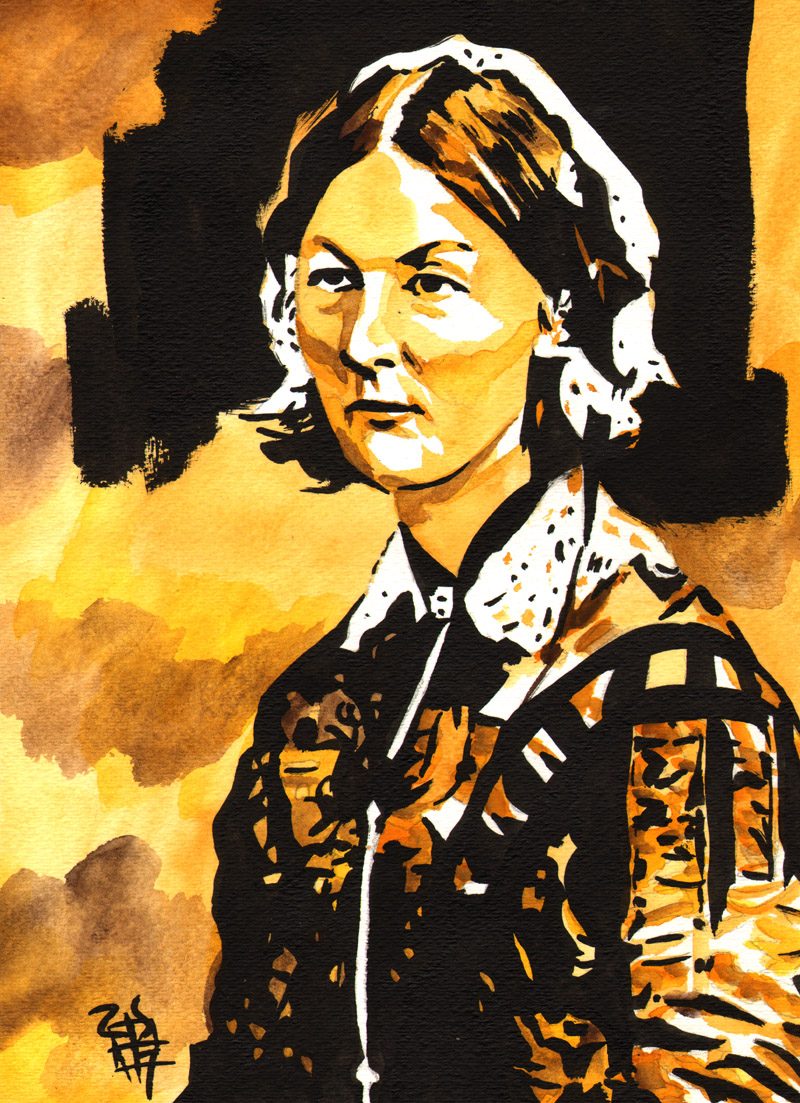Florence Nightingale
Ink and watercolor on 9″ x 12″ watercolor paper
The latest addition to the ‘She Changed the World’ collection!
Florence Nightingale (1820-1910) was born in Florence, Italy to an affluent British family. Following a traditional education, she rebelled against her family’s wishes, which were for her to marry someone of an equal or greater class, and instead began studying as a nurse to be of aid to those in need. Receiving her training in Germany, she returned to London where she soon became the superintendent for a hospital.
In 1854 Nightingale received a letter from Secretary of War Sidney Herbert, asking her to organize a corps of nurses to aid the injured soldiers of the Crimean War. Days later they were on their way. Conditions in the field hospitals were horrible, with human waste, rodents, bugs and contaminated water prevalent. The majority of the soldiers were dying from typhoid and cholera than from their war injuries. She quickly set her assistants to cleaning the hospital from top to bottom, aided by the least infirm of the patients. Fresh linens and laundry were provided, the kitchen was improved to supply food specific to a patient’s dietary needs, and a classroom and a library were added to give the patients mental stimulation. Nightingale herself went from patient to patient around the clock, at night walking with a lantern, leading to her being known both as ‘the Lady with the Lamp’ and ‘the Angel of Crimea’. Deaths decreased by two-thirds under her watch.
She was honored by Queen Victoria for her service with a grant of $250,000, which she used to found St Thomas’ Hospital and the Nightingale Training School for Nurses. Because of her notoriety, many of the students were from the upper class, ending the prior view of the profession and beginning its standing as an honorable profession. She spent the rest of her life advocating for improvements in the field of nursing, even though she was largely bedridden due to an affliction caught during the Crimean War. Her life’s work sparked worldwide healthcare reform and she is largely viewed as the founder of modern nursing.

